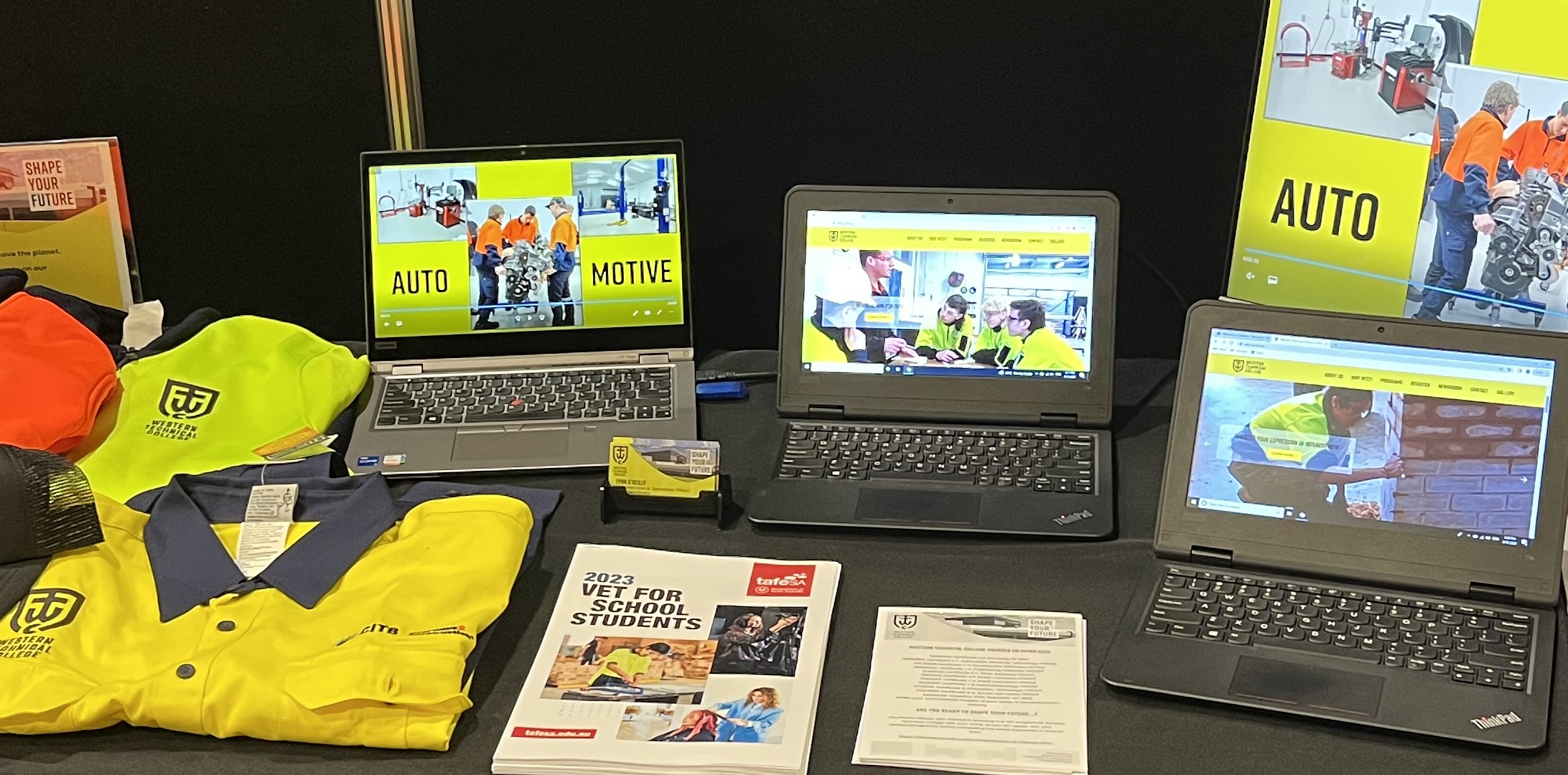Programs
programs and opportunities to shape your future...
Western Technical College provides students from Year 10 -Year 12 the opportunity to explore and acquire workplace skills through nationally recognised training described within an industry-developed training package or an accredited course. The achievement of any VET qualification delivered at Western Technical College, signifies that a student has demonstrated competency against the skills and knowledge required to perform effectively in the workplace.
Students can commence training at Western Technical College at an Introductory level, ie, whilst having the ability to gain 10 SACE credits at Stage 1. Progression for the next year or level (depending on the chosen course) is a Certificate II or Certificate III or partial Certificate III, which attracts Stage 1 and Stage 2 SACE credits.
Experienced, accredited TAFESA trainers deliver the courses in simulated workspaces, where students can progress to achieve a career pathway outcome as an apprentice, trainee or gainfully employed.
Offering a diverse range of courses, Western Technical College should be considered by students and schools from all sectors as the Vocational Education & Training facility of choice.
Full course details, including pricing, can be found in the Course Outline - which is available for download under each course listing on the relevant program below.


